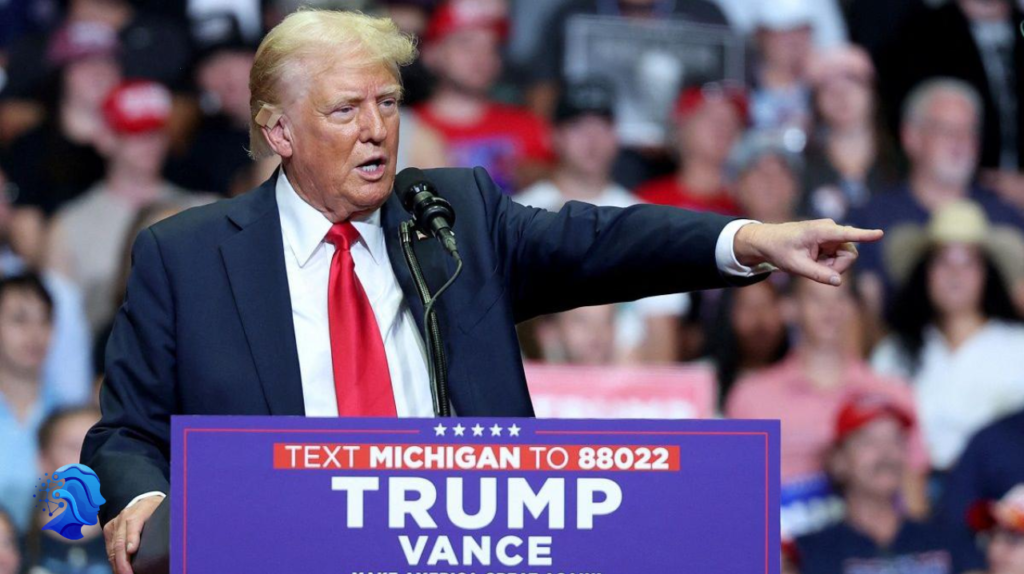In a concerning development for the 2024 U.S. presidential election, an Iranian hacking group has successfully peddled stolen emails from Donald Trump’s campaign. This incident sheds light on the evolving landscape of election interference and the potential risks foreign actors pose. The accused hackers, linked to Tehran, have transitioned from failed attempts to engage mainstream media to successfully leaking sensitive information, raising alarms about cybersecurity and the integrity of democratic processes.
Background on the Hackers and Their Tactics
The hacking group in question, Mint Sandstorm or APT42, is reportedly affiliated with Iran’s Basij paramilitary force. This group has been implicated in various cyber activities to undermine U.S. interests, particularly during election cycles. According to a September indictment from the U.S. Justice Department, the hackers compromised multiple Trump campaign staffers between May and June 2023, primarily by stealing passwords through phishing attacks
The Leaked Emails
The stolen material includes internal communications among Trump campaign staff discussing strategies and key political figures as the 2024 election approaches. The leaks have begun to surface on various platforms, including American Muckrakers, a political action committee (PAC) known for opposing Trump and other Republicans. This distribution of sensitive information has raised ethical questions about the role of political operatives and the implications of using hacked materials in political discourse.
The Shift in Strategy
Initially, the Iranian hackers attempted to leak the stolen emails to prominent media outlets like Politico, The Washington Post, and The New York Times. However, these efforts were largely unsuccessful, as significant news organizations opted not to publish stories based on the leaked materials due to concerns over verification and the documents’ origins. For instance, a spokesperson from The New York Times stated that they would only publish materials if they could verify their authenticity and newsworthiness.
Successful Publication Through Alternative Channels
In a notable turn of events, the hackers reached a Democratic political operative who published the material on his PAC’s website. This tactic underscores a shift toward leveraging alternative platforms, such as Substack, allowing independent journalists to share content without the same scrutiny traditional media outlets face. Notably, independent national security reporter Ken Klippenstein utilized Substack to publish the leaked information, asserting the material’s newsworthiness and the importance of transparency in political matters.
Implications for Election Integrity
A Continued Threat
The operation provides a glimpse into the broader implications of foreign interference in U.S. elections. Despite the U.S. Justice Department’s indictment of the hackers, Iran’s determination to meddle in electoral processes remains evident. Officials have noted that the current interference efforts appear focused on discrediting Trump, mainly due to his administration’s role in the 2020 drone strike that killed Iranian General Qassem Soleimani.
Concerns Over Cybersecurity
The hacking incident serves as a stark reminder of the vulnerabilities in political campaign cybersecurity. With the rise of digital communication, the risk of unauthorized access to sensitive information has increased. Campaign teams must implement robust cybersecurity measures to protect their communications from foreign threats as the election cycle heats up.
Responses from the Trump Campaign and Authorities
The Trump campaign has condemned the hacking operation, labeling it as an attempt to interfere with the electoral process. They have also criticized any journalists who publish the stolen documents, accusing them of serving the interests of America’s adversaries. This reaction highlights the political ramifications of such cyberattacks and their challenges to maintaining a fair electoral landscape.
Investigations and Accountability
In light of the hacking allegations, the FBI has intensified its investigations into Iranian interference activities during the election cycle. Law enforcement agencies are keenly aware of the risks associated with foreign influence and are working to ensure that campaign staff are informed about potential threats. Reports indicate that the FBI has contacted journalists publishing the leaked materials, warning them of their participation in a “foreign malign influence operation.”
The Role of Political Action Committees (PACs)
The emergence of American Muckrakers as a platform for disseminating leaked information raises critical questions about the ethical boundaries of political action committees. Founded by David Wheeler, the PAC aims to expose perceived malfeasance within the Trump campaign and has a history of publicizing damaging information about Republican candidates. This situation illustrates the blurred lines between traditional journalism and political advocacy in an age of rapid information sharing.
Future of Political Discourse
The actions of American Muckrakers reflect a growing trend where political operatives leverage hacked materials to influence public opinion and shape electoral narratives. As political discourse becomes increasingly intertwined with digital platforms, the potential for misinformation and manipulation rises, necessitating a more vigilant approach from both media and political entities.
Conclusion
The recent revelations regarding Iranian hackers successfully leaking Trump campaign emails underscore the persistent threat of foreign interference in U.S. elections. As the 2024 election approaches, the need for robust cybersecurity measures and ethical considerations in using leaked materials becomes more pressing. The intersection of politics and cybersecurity poses significant challenges to maintaining the integrity of democratic processes.

1 Comment
Pingback: Iranian Hackers Target Trump Campaign Emails: A Deep Dive into Election Interference – Oranic Soft